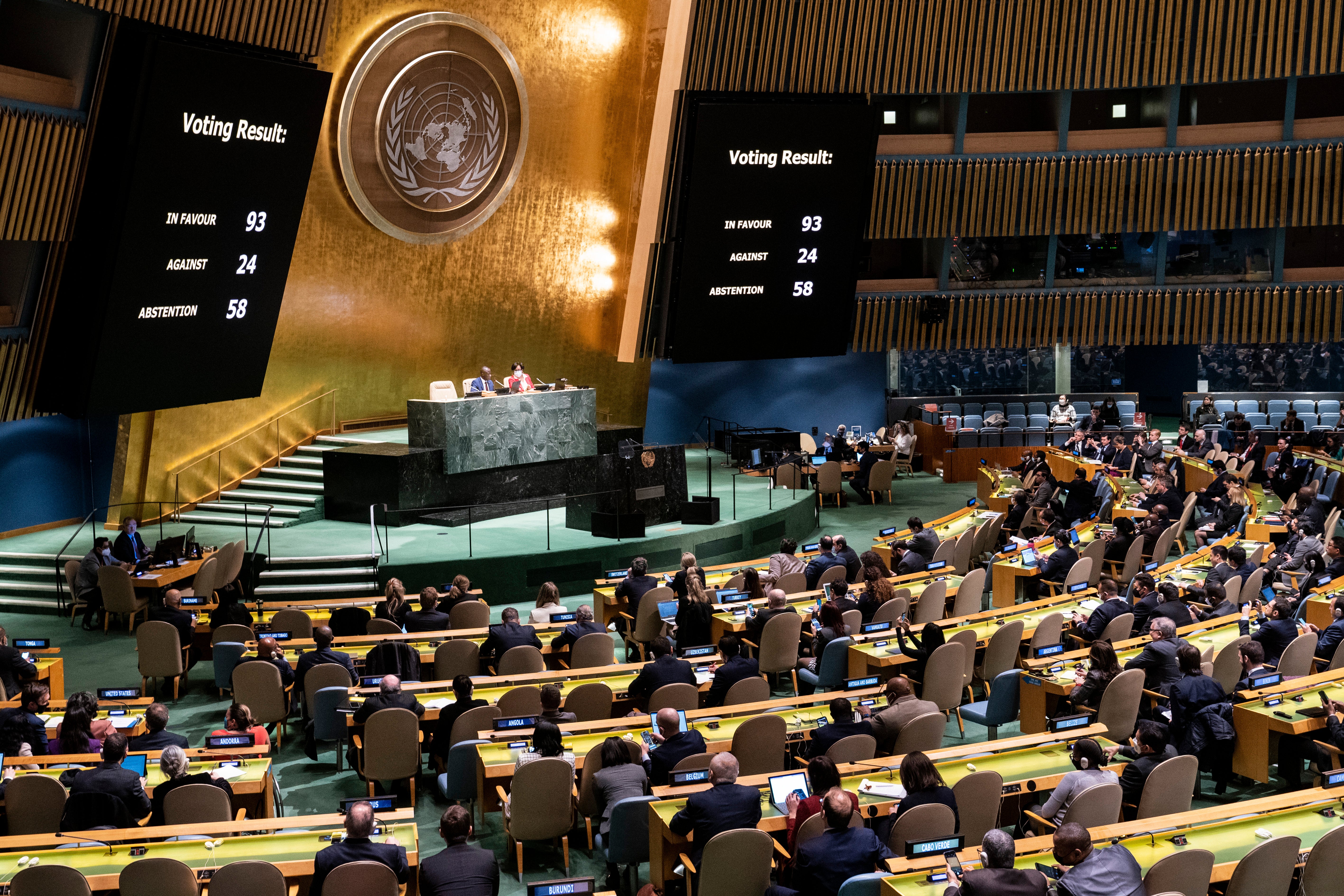Human rights in Russia have 'significantly' worsened since Ukraine war began, UN-backed expert says
An expert commissioned by the U.N.’s top human rights body says in her first report on Russia that the rights situation in the country has “significantly deteriorated” since President Vladimir Putin launched his war against Ukraine last February

The rights situation in Russia has “significantly deteriorated” since President Vladimir Putin launched his war against Ukraine in February last year, an expert commissioned by the U.N.’s top human rights body said in her first report on the country on Monday.
Mariana Katzarova, the special rapporteur on Russia's rights situation mandated by the Human Rights Council, chronicled the domestic crackdown that has largely targeted critics of Putin's war as well as other opposition voices in Russia.
Her report, made public on Monday, is separate from another probe by U.N.-backed investigators that has accused Russia of war crimes in Ukraine.
Never before has the council authorized a rights expert to examine rights issues in one of the permanent members of the U.N. Security Council: Britain, China, France, Russia and the United States.
The report cited figures last month from OVD-Info, which tracks human rights violations, indicating that more than 20,000 people were detained between February last year and June for participating in anti-war protests. More than 600 criminal lawsuits were initiated against “anti-war activity," it said.
The report said over half of all protesters who were arrested for what it called “peaceful anti-war activism” were women.
Katzarova said she had received “credible reports” of a litany of rights violations including torture, allegations of rape and sexual violence, and threats of sexual abuse by law enforcement officers against both men and women. None of those cases had been officially investigated, she said.
The Russian Justice Ministry’s registry of “foreign agents” contained 649 organizations and individuals by the end of July — an increase of more than 25% in six months, the report said. More than 100 organizations were declared as “undesirable” at the end of July, meaning they could be banned.
Last April, barely six weeks after Russia's armed invasion of Ukraine, the U.N. General Assembly suspended Russia's seat in the 47-member-country rights council in Geneva.
The mandate of Katzarova, who is Bulgarian, was created a year ago, and she started work in May. Authorities in Russia have refused to cooperate, and said submissions from her team would be “automatically disregarded,” the report said.
Rights in Russia have been on a “steady decline” over the last two decades, the report said, but Katzarova found the situation has “significantly deteriorated since its invasion of Ukraine in February 2022.”
The report was built on consultations with over 60 Russian and international rights organizations and individuals, and nearly 100 written submissions, including from rights advocates and witnesses of rights violations. The rights council is set to discuss it Thursday.
Since the start of the war, the Kremlin has claimed that the vast majority of Russians support its “special military operation” in Ukraine, while also insisting that those who disagree are free to do so.
Kremlin spokesman Dmitry Peskov has noted, however, that those willing to criticize the government must do it in compliance with the existing laws.
Putin himself has said that he is “not judging” those “who behaved not like patriots.” He also said last week that one “can disagree” with the Russian authorities “and live here, speak out about it -- no one is prohibiting it.”
Bookmark popover
Removed from bookmarks